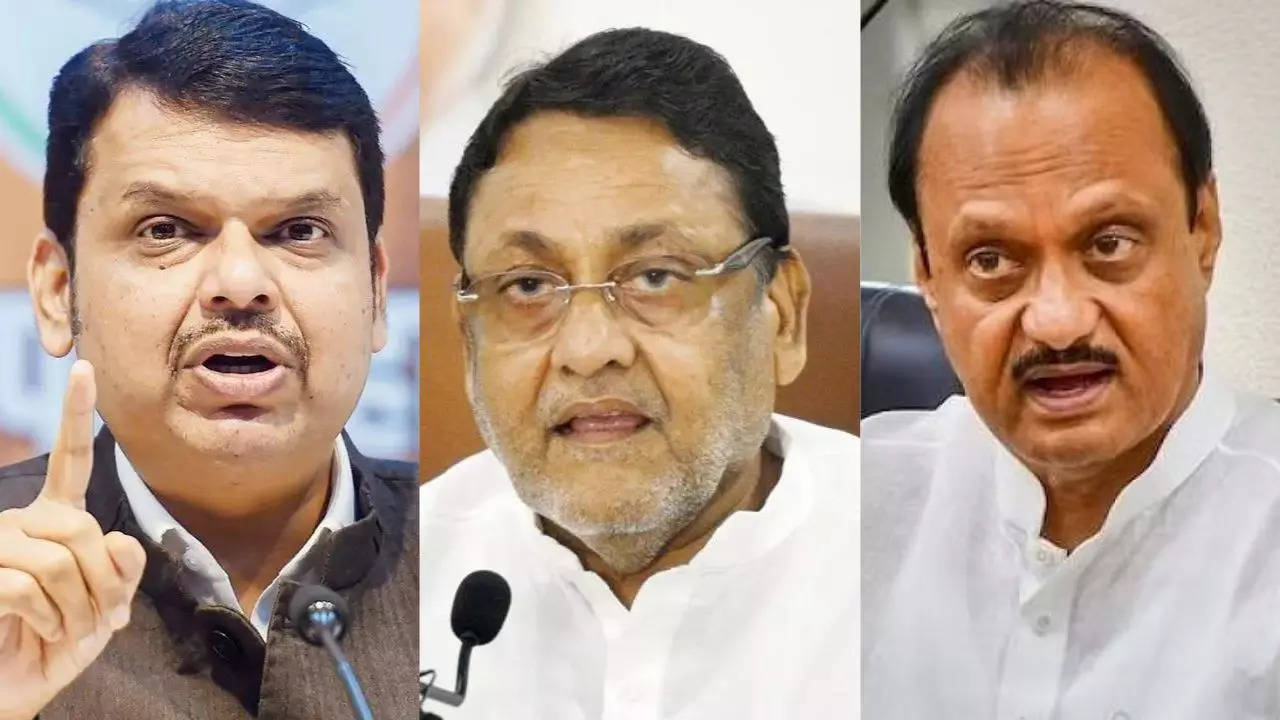As Maharashtra braces for its November 20 assembly elections, the BJP faces a critical test that demands decisive action and an honest self-assessment. The ruling “Mahayuthi” alliance, which BJP leads alongside Eknath Shinde’s Shiv Sena faction, now carries the added weight of Ajit Pawar’s Nationalist Congress Party (NCP)—a partner whose controversial moves have put the BJP in an uncomfortable spot. Among them is the NCP’s nomination of Nawab Malik, currently under scrutiny for alleged ties to underworld figure Dawood Ibrahim, a decision that has cast a shadow over the alliance. BJP’s alignment with Ajit Pawar’s NCP, an alliance born of expedience rather than necessity, has exposed a fault line that the party can no longer ignore. By accommodating the NCP in its ranks, the BJP risks undermining its long-cultivated image of integrity. While Chief Minister Eknath Shinde has tried to mitigate the damage by fielding a Shiv Sena candidate against Malik, the controversy lingers, and mere distancing tactics may not be enough. Maharashtra voters have come to expect bold stances, not half-measures, from the BJP—and this candidate choice could be a liability that the BJP can’t afford. Adding fuel to the fire, the BJP has chosen not to break ties with Ajit Pawar’s NCP despite the clear political baggage he brings. By continuing to work with a party that joined their alliance midway, the BJP invites scrutiny, especially when it and Shinde’s faction held a comfortable majority in the assembly even before Ajit Pawar’s NCP came into the fold. One has to question: why should BJP tolerate this alliance, especially as Ajit Pawar’s loyalty remains questionable given his close family ties to his uncle, Sharad Pawar, who heads the opposition MVA bloc?

On the opposition side, Maharashtra’s Maha Vikas Aghadi (MVA), formed by Uddhav Thackeray’s Shiv Sena, Sharad Pawar’s NCP, and the Congress, is also a coalition plagued by internal differences. Seat-sharing negotiations have been fractious, though the MVA’s recent win of 30 out of 48 seats in Maharashtra’s parliamentary polls reflects its potential strength. The alliance’s three key players are set to contest 85 seats each, with minor partners like the Samajwadi Party demanding a share of their own. Despite this friction, the MVA poses a formidable challenge in a state where coalition alliances often carry the day. The BJP and its allies, on the other hand, seem optimistic about securing enough seats for another term. Yet Ajit Pawar’s unpredictable moves, coupled with his family’s NCP ties, bring a cloud of distrust that the BJP may struggle to dispel. Fielding candidates like Nawab Malik—linked to past controversies involving the D-Gang and political patronage—raises questions about the BJP’s commitment to its core values. For a party that has prided itself on being a “party with a difference,” retaining an alliance with Ajit Pawar’s NCP looks increasingly incompatible with that motto. What is at stake here is not only the BJP’s seat count—although that is significant. In the 2019 assembly elections, BJP won 105 seats, and this year it aims to surpass that figure by winning between 120 and 130 seats out of 148 it is contesting. Falling short would mark a sharp setback for a party that just a few years ago held a dominant position in Maharashtra. Indeed, in the last Lok Sabha polls, the BJP saw its seat count in the state reduced to 9, down from 23—a signal that voters may be growing weary of compromises and unfulfilled promises. With Yogi Adityanath’s rallying cries urging Hindu unity, and the Rashtriya Swayamsevak Sangh (RSS) lending logical and vocal support, the BJP might appear well-positioned. However, alliances built on uneasy compromises—such as the one with Ajit Pawar’s NCP—could backfire. The BJP should recognize that compromise without principle can come at a high cost. The party must now ask itself: what’s more valuable—a tactical alliance or a clean slate that upholds its integrity? If the BJP truly wishes to claim the moral high ground and remain a party defined by its distinct values, then distancing itself from Ajit Pawar’s faction, however belatedly, might just be the bold move it needs to retain the trust of Maharashtra’s voters.





